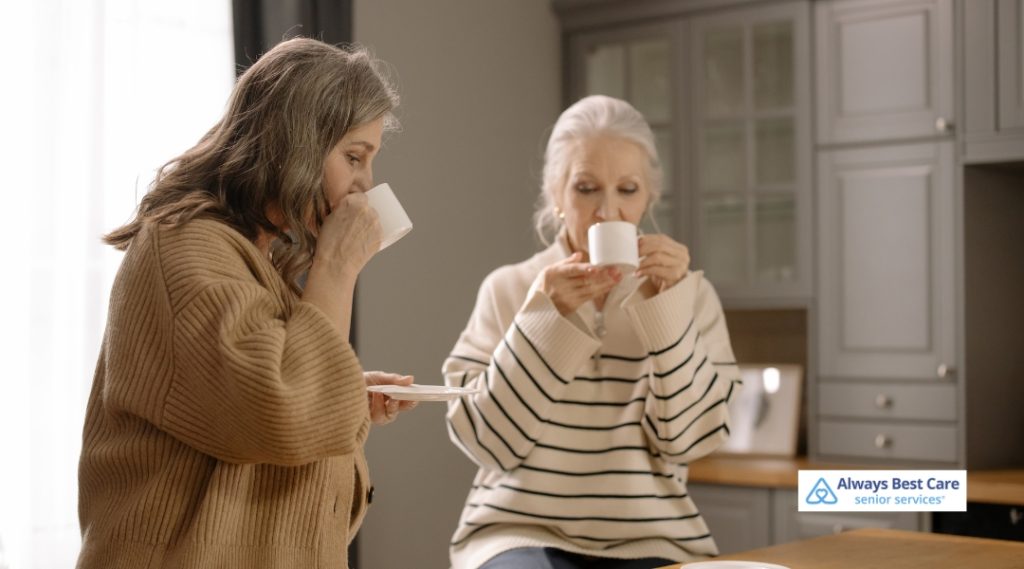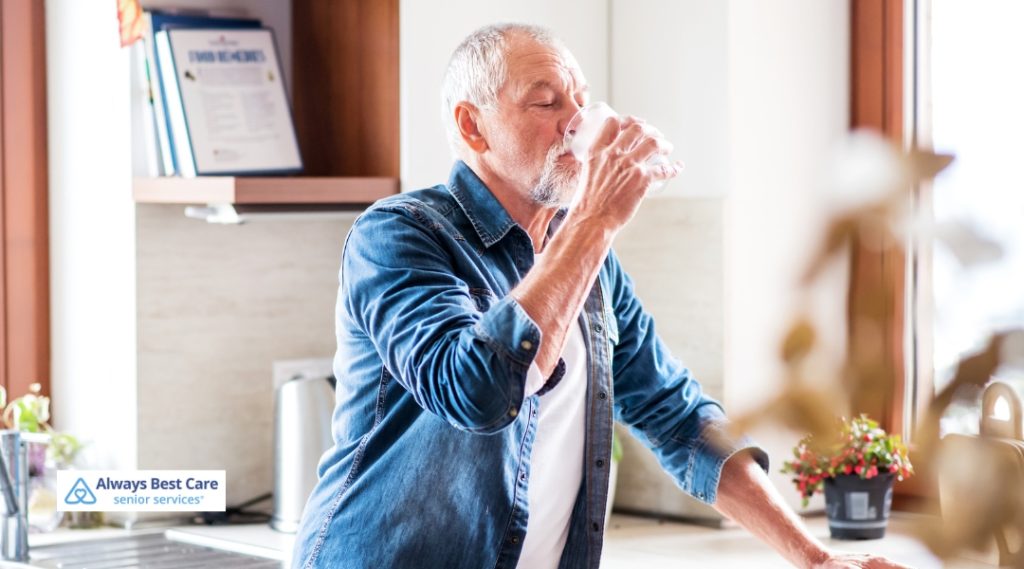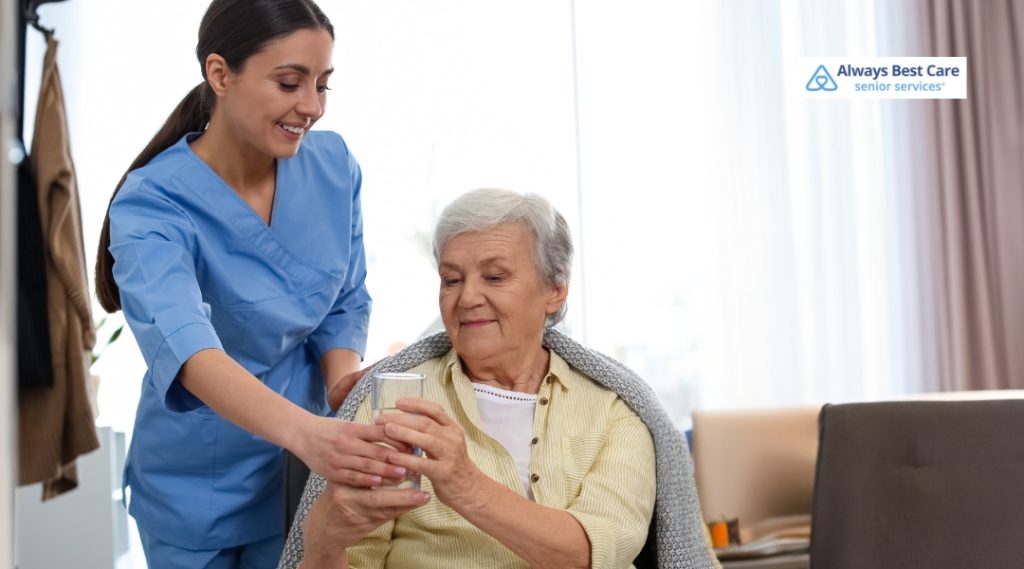The Fountain of Healthy Aging: Unlocking the Benefits of Water for Seniors

Staying properly hydrated isn’t just a good idea; it’s absolutely essential, especially for our senior loved ones.
As we age, our bodies undergo natural changes that can significantly increase the risk of dehydration.
Yet, many seniors simply don’t drink enough water throughout the day.
With National Hydration Day coming up, there’s no better time to shine a light on this critical issue and encourage better drinking habits among our seniors.
Understanding water’s vital role can help families and caregivers keep their senior loved ones healthy, alert, and full of energy.
What you will learn:
- The vital role water plays in senior health, from boosting energy and mental clarity to supporting digestion and joint comfort.
- The unique hydration challenges seniors face and the risks of dehydration as we age.
- Creative, practical strategies for encouraging seniors to drink more fluids and stay well-hydrated every day.
- How caregivers and families can partner with professionals to ensure loved ones remain healthy, happy, and hydrated at home.
Table of Contents
Why Water Matters for Senior Wellness
Water isn’t just refreshing; it’s the foundation of good health! Making up more than half of the human body, it plays a crucial role in nearly every bodily function.
For seniors, staying properly hydrated is non-negotiable for several key reasons:
Energy and Vitality
Proper hydration helps maintain blood volume, which efficiently transports oxygen throughout the body, giving seniors the stamina they need for daily activities.
Brain Power and Mental Clarity
For seniors, particularly those dealing with cognitive challenges or dementia, insufficient fluid intake can worsen confusion or disorientation. Drinking enough water supports brain function and helps maintain mental sharpness.

Digestive Comfort
Fluids help soften stool and support proper digestion. Without adequate hydration, everything slows down, leading to discomfort that can affect appetite and nutritional health.
Moving with Ease
Water supports muscle and joint health by keeping tissues lubricated. Seniors who stay well-hydrated often experience less stiffness and joint discomfort, helping them stay active and mobile longer.
5 Creative Ways to Boost Hydration
If your loved one struggles to drink enough water, don’t give up! Try these practical approaches:
- Offer a variety of hydrating options: Herbal teas, milk, broth-based soups, or water infused with fruits and herbs.
- Incorporate water-rich foods like watermelon, cucumber, oranges, and strawberries.
- Set up gentle reminders throughout the day, especially with meals or medications.
- Use colorful or easy-grip cups to make hydration more appealing and accessible.
- Check urine color: Pale yellow typically means good hydration, while darker shades suggest more fluids are needed.

How We Can Help at Always Best Care
At Always Best Care of Shalimar, we understand the challenges seniors face with staying hydrated. Our professional caregivers don’t just remind your loved ones to drink; they make hydration a natural part of their daily routine.
Our team can assist with meal preparation that incorporates hydrating foods, offer regular gentle reminders to sip water, and monitor for early signs of dehydration. We can also help address practical barriers, such as difficulty accessing the bathroom or managing medications that may affect fluid levels.
FAQ About Senior Hydration
Q: How much water should seniors drink daily?
A: While individual needs vary, most healthcare professionals recommend 6-8 glasses of fluid daily. Medical conditions and medications may affect this amount, so it’s best to consult with a healthcare provider.
Q: What are the warning signs of dehydration in seniors?
A: Watch for dry mouth, headache, dizziness, dark urine, confusion, fatigue, and decreased urination. Severe dehydration requires immediate medical attention.
Q: My loved one says they’re not thirsty. Should I still encourage drinking?
A: Absolutely! The sensation of thirst diminishes with age, so many seniors don’t feel thirsty even when their bodies need fluids.
Q: Can coffee and tea count toward daily fluid intake?
A: Yes, though in moderation. While caffeinated beverages have a mild diuretic effect, they still contribute to overall hydration. Water remains the best choice for most of the day’s fluid intake.

Keep Your Loved One Safe and Hydrated!
Need extra support? An in-home caregiver from Always Best Care can help ensure your loved one stays well-nourished and hydrated while living comfortably at home.
Contact Always Best Care of Shalimar at (850) 797-8710 to learn more and schedule your free consultation.





